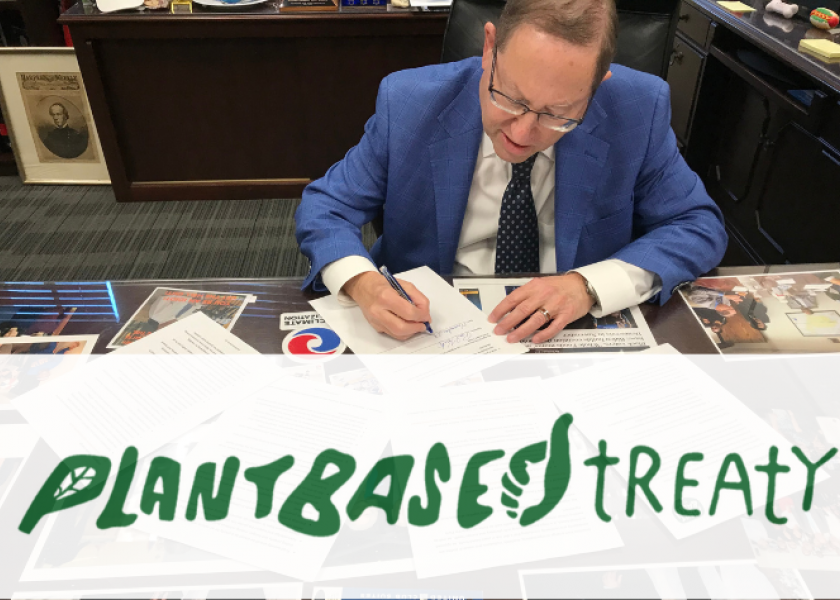California’s Plant-Based Push Grows More Legs with LA Support

The Los Angeles, Calif., City Council voted unanimously on Tuesday to adopt its resolution in support of the global Plant Based Treaty initiative. Pending concurrence of the mayor, it will become the world's largest city to endorse the treaty.
According to the Plant Based Treaty website, the initiative rests on three core principles:
• Relinquish— No land use change, ecosystem degradation or deforestation for animal agriculture
• Redirect—An active transition away from animal-based food systems to plant-based systems
• Restore—Actively restoring key ecosystems, particularly restoring forests and rewilding landscapes.
As C40 cities—with a mission to halve the emissions of the cities within a decade—Los Angeles joins Buenos Aires in endorsement of this treaty.
Specifically, regarding animal agriculture, the treaty intends on halting expansion of animal agriculture and promoting a shift towards plant-based diets.
The California Department of Food and Agriculture reports, in 2021, dairy products and milk contributed $7.57 billion to the state—the highest total of over 400 commodities. California claims the country’s largest dairy industry, with 1,400 dairies totaling approximately 1.7 million cows. Meanwhile, cattle and calves contributed $3.11 billion to the state with nearly 5.2 million head.
Multiple animal rights groups, including the PawPAC and the Animal Alliance Network, praised the decision of the city council, proclaiming the importance of “reversing the crisis” and preventing further climate change as a need for their constituents and beyond.
According to a press release, the Plant Based Treaty’s global movement is to help pressure national governments to negotiate a global treaty that will focus on the following:
• Halt the global expansion of deforestation attributed to animal agriculture
• Incentivize a plant-based food system
• Encourage public information campaigns about the benefits of plant-based foods
• Free up land and waters to rewild, reforest and restore the Earth’s oceans
• Allow a just transition to more sustainable jobs, healthier people and a thriving planet
Also worth noting, this California initiative follows within months of President Biden’s “Executive Order on Advancing Biotechnology and Biomanufacturing Innovation for a Sustainable, Safe and Secure American Bioeconomy,” which explains that, “assessing how to use biotechnology and biomanufacturing for food and agriculture innovation, including by improving sustainability and land conservation; increasing food quality and nutrition; increasing and protecting agricultural yields; protecting against plant and animal pests and diseases; and cultivating alternative food sources,” is part the action plan focus.
Additionally, California’s Proposition 12 case—a California law banning the sale of pork within the state unless pregnant pigs are allowed at least 24 square feet of space and the ability to stand up and turn around in their pens—was recently heard in the U.S. Supreme Court.
Whether cultivating alternative meat in a lab or encouraging an all plant-based diet, the push against livestock production and animal-based food products continues to grow.







